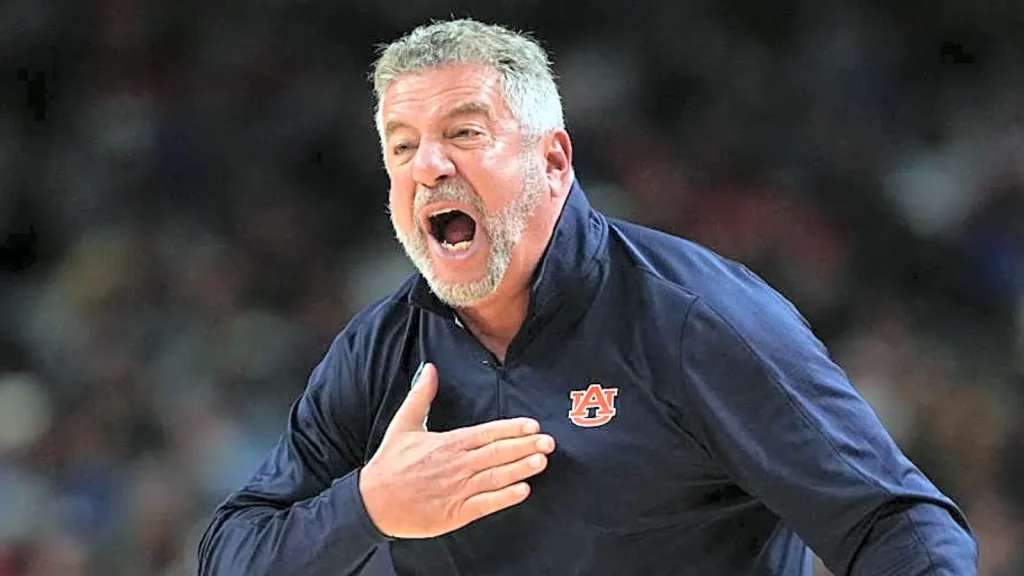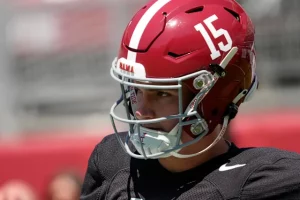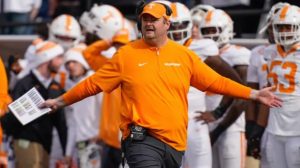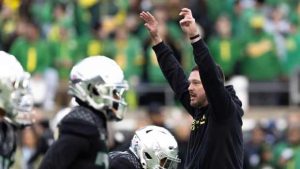
When Bruce Pearl arrived at Auburn in 2014, the Tigers were a struggling basketball program with little national recognition. Fast forward a decade, and Auburn has not only become a consistent force in the SEC but a national power capable of competing with the best programs in the country. Pearl’s impact has been transformative—both on and off the court. His leadership, recruiting acumen, player development strategies, and deep understanding of the game have positioned the Tigers as a formidable basketball powerhouse. This article explores how Bruce Pearl has become essential to Auburn’s basketball success and how his presence continues to elevate the program to new heights.
When Pearl took over in 2014, Auburn was coming off a series of dismal seasons. The Tigers had not made the NCAA Tournament since 2003 and were often an afterthought in the powerful Southeastern Conference. More than anything, the program lacked identity.
Pearl changed that immediately. He instilled a culture of accountability, effort, and enthusiasm. Practices became more intense, player development took center stage, and the team began to resemble the blue-collar identity Pearl had been known for at previous stops like Tennessee and Milwaukee. But this wasn’t just about hustle—Pearl demanded excellence on the court and fostered belief off of it. The players bought in. The fans did too.
He also brought an infectious energy that resonated with Auburn’s fanbase. Suddenly, basketball mattered on The Plains.
One of the clearest indicators of Pearl’s success has been his ability to recruit top-tier talent. Auburn, long seen as a football school, was never a premier destination for elite basketball recruits. That changed under Pearl.
From signing five-star players like Jabari Smith Jr., Sharife Cooper, and Yohan Traore to landing impactful transfers such as K.D. Johnson and Wendell Green Jr., Pearl has built a roster that can compete with any program in the nation. The 2019 Final Four team featured a strong mix of homegrown talent and carefully scouted recruits like Jared Harper, Bryce Brown, and Chuma Okeke.
Pearl’s recruiting pitch is as much about development and culture as it is about exposure. He sells Auburn as a place where players grow, have fun, and win. And he backs it up with results.
Moreover, his staff has been essential in maintaining those recruiting ties, particularly in the Southeast. Auburn now has a legitimate recruiting pipeline that flows directly through Atlanta, Birmingham, and beyond.
Pearl’s coaching philosophy is rooted in aggression and tempo. His teams play fast, they pressure the ball, and they aren’t afraid to shoot. He emphasizes transition offense, spacing, and defensive intensity.
This aggressive style has helped Auburn become one of the most entertaining teams in college basketball. It also makes them tough to prepare for. Opponents struggle to keep up with Auburn’s pace and intensity, particularly at Neville Arena, where the crowd can be deafening.
Defensively, Pearl demands versatility. His teams switch screens, trap ball handlers, and protect the paint. Auburn has consistently ranked among the top defensive teams in the country, thanks in part to the development of rim protectors like Walker Kessler and Dylan Cardwell.
Pearl’s ability to adjust mid-season and mid-game is also underrated. He tweaks lineups based on matchups, trusts his bench, and gives his players freedom within structure. This balance of strategy and spontaneity is what separates good coaches from great ones.
The 2018–19 season was the defining moment of Pearl’s Auburn tenure to date. That team, led by Harper, Brown, Okeke, and center Austin Wiley, captured the attention of the college basketball world. After finishing fourth in the SEC, they went on a remarkable postseason run, defeating bluebloods Kansas, North Carolina, and Kentucky en route to the program’s first-ever Final Four appearance.
Though the Tigers narrowly lost to eventual champion Virginia in the national semifinal—a game marred by controversial officiating—it was clear that Auburn had arrived.
That run changed everything. It elevated the program’s national profile, helped Pearl cement his recruiting pitch, and proved that Auburn basketball could not only compete, but thrive, on the biggest stage.
Pearl doesn’t just recruit talent—he molds it.
Under his leadership, Auburn players have made huge strides in development. Bryce Brown became one of the most lethal shooters in college basketball. Jared Harper transformed into an elite point guard. Chuma Okeke, once a raw prospect, became a lottery pick. Jabari Smith Jr. turned into the No. 3 overall pick in the 2022 NBA Draft, while Walker Kessler went from a role player at UNC to an NBA All-Rookie First Team member after a standout season with the Tigers.
Pearl and his staff take a holistic approach to development—mental, physical, and tactical. They emphasize film study, nutrition, weight training, and leadership skills.
In doing so, Pearl has created a program that is seen as a legitimate path to the NBA. Auburn now boasts a growing list of professional alumni, and that has a ripple effect on future recruiting.
Bruce Pearl understands that building a successful college program isn’t just about wins—it’s about building a brand. From day one, he embraced Auburn’s culture and connected deeply with its fanbase. He attends football games, engages with students, and openly promotes school spirit.
Under Pearl, Auburn basketball games became must-see events. Neville Arena (formerly Auburn Arena) transformed into one of the most hostile and energetic environments in the country. The “Jungle,” Auburn’s raucous student section, is a direct reflection of Pearl’s passion and charisma.
He’s made Auburn basketball cool.
This matters more than people realize. Recruiting is easier when a program has energy. Fundraising improves. Fans travel better. And most importantly, players feel supported and energized by the atmosphere.
Pearl has not had a smooth, controversy-free ride at Auburn. The program navigated an NCAA investigation stemming from the FBI’s 2017 probe into college basketball, during which assistant coach Chuck Person was implicated. Auburn self-imposed penalties, including a postseason ban for the 2020–21 season.
Through it all, Pearl remained transparent, cooperative, and focused on rebuilding trust. His leadership kept the program stable during a turbulent period, and his ability to rally the team through adversity reinforced his value.
Where other programs might have crumbled, Auburn stayed competitive.
What sets Pearl apart is his long-term vision. He’s not content with a Final Four or a single SEC title. He wants sustained excellence.
Auburn is investing in that vision too. Facility upgrades, expanded recruiting budgets, and continued support from university leadership show a unified commitment to basketball success. Pearl recently signed a long-term contract extension, signaling that both sides are in it for the long haul.
He’s also adapting with the times—embracing NIL opportunities for his players, leveraging social media, and understanding the evolving dynamics of modern college basketball.
With Pearl at the helm, Auburn is not just relevant—it’s thriving. And the future looks even brighter.
Ultimately, Bruce Pearl is more than just a coach. He’s a leader. He’s a motivator. And he’s a builder.
He’s loyal to Auburn, having turned down other lucrative opportunities to stay on The Plains. He’s become a face of the university—not just the basketball program—and that level of commitment resonates with players, recruits, and fans alike.
Pearl’s legacy at Auburn is already secure, but he’s not done yet. The program he’s built has the foundation, momentum, and leadership to contend for championships year in and year out. And in a sport where stability and vision are rare, Auburn has both in abundance with Bruce Pearl.
Bruce Pearl didn’t just make Auburn basketball better—he made it matter.
His arrival marked a turning point for a program desperately in need of revival. Through elite recruiting, player development, fan engagement, and tireless passion, Pearl has redefined what’s possible for Auburn basketball. He’s not just a good fit—he’s the catalyst.
As long as Bruce Pearl is leading the Tigers, Auburn fans can dream big. Final Fours. SEC titles. National championships. They’re all on the table. And perhaps most importantly, he’s made Auburn basketball something to believe in.





